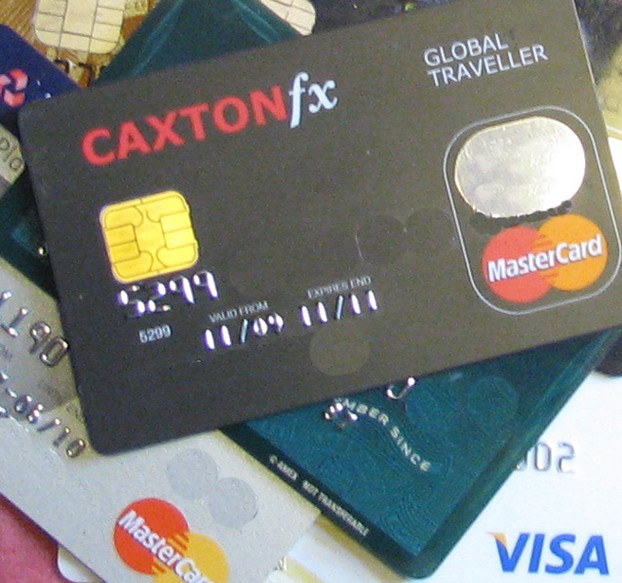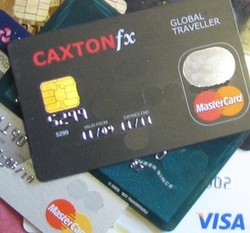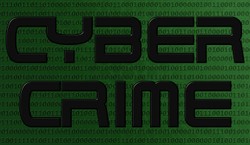Identity theft is becoming more prevalent and the crooks are getting cleverer at managing to acquire enough personal information from someone to access bank accounts or use their credit cards. Here, Steve Rogerson provides some advice and a few tips on how to protect against such attacks to make sure you are not the next victim,

How to Guard Against Identity Theft
A look at what is identity theft and how to protect against it.
 Beware credit-card fraud |
Many people open their credit-card bill each month and receive a shock at just how much they owe. Often this is because they have spent more than they thought they had but sometimes it is because somebody has pretended to be that person and used the card for their own purposes. This is known as identity fraud or identity theft.
Fraudsters can do this through a variety of ways by say finding out a person’s bank or credit-card details, finding personal information from documents in somebody’s bin, searching through their online profiles on social media sites such as Facebook and LinkedIn, or tricking a person into giving out personal information over the phone or via an email.
For someone to find out if they are a victim they should check credit-card bills and bank statements carefully to look for payments or direct debits that should not be there. Also, if an important letter has gone missing it may not just have been lost in the post but could have been stolen to access information that it might contain.
Stopping Identity Theft
There are a few simple steps that can be quite effective at making it difficult for fraudsters to obtain personal details. One is to take care when disposing of documents that may contain such information. There are relatively cheap paper shredders on the market and these can be used for credit-card bills and the like before putting them in the rubbish. Also, delay putting out paper rubbish until as near as possible to when the refuse collection is due to reduce the window of opportunity for a fraudster.
Never click on a link in an email that says its is from a bank, building society or credit-card company, no matter how official it looks. Check with the bank if this is genuine by ringing them at a known number such as found on a letter from them or log on to the online account using the normal method and not through the email link. And keep social media profiles to the minimum information needed.
Security Questions and Passwords
Never give out passwords or answers to security questions in response to an email or telephone call. A fraudster may have certain pieces of information about a person but not everything that is needed. The fraudster could use this information to appear as a genuine caller and then ask a security question to fill in the gaps.
For example, a fraudster may say: “I am not going to ask you a full security question, I just need to verify your identity. Your birthday is 11 March, can you tell me the year you were born?” It is quite easy to find a birthday from social networking sites and the like. Even if a person does not list it on such sites, friends will wish each other happy birthday and that gives away the date but often not the year.
The golden rule is never answer a security question such as date of birth or mother’s maiden name if the other body has initiated the call. Ask the nature of the call and call back to a known good number. Genuine callers will not mind and should even encourage this.
Credit-Card Protection
People paying by credit card should keep the card in sight at all times. Memorise the PIN (personal identification number) or change it to a PIN that is easier to remember, but do not use obvious ones such as 1111 or 1234. Those who live in a shared house should ask their bank or credit-card company if they can collect a new card rather than having it delivered.
Keep a note of emergency numbers to call if credit cards are stolen and do not keep this number in the same wallet or pocket as the credit cards themselves. Never read out a credit card number over the phone in a public place where someone could overhear.
Reporting Identity Theft
Those who think they may have been a victim of identity theft should contact the relevant people immediately. If there have been unauthorised charges, the bank or credit-card company should be contacted. Stolen documents such as a driving licence or passport should be reported straight away. And the mail service can help those who think their mail may have been stolen or intercepted.
Further Information on Identity Fraud
Action Fraud provides advice on identity fraud and Identity Theft gives more detailed information.
You might also like
CybersquattingCybersquatting is a situation in which somebody registers a domain with sole ...
How to Avoid Trouble Using Self DefenseFollow along as we share strategies to avoid attacks. This guide will give yo...






 KZine Issue 31: Review of October 2021 Issueon 11/07/2021
KZine Issue 31: Review of October 2021 Issueon 11/07/2021
 KZine Issue 30: Review of June 2021 Issueon 07/05/2021
KZine Issue 30: Review of June 2021 Issueon 07/05/2021
 KZine Issue 29: Review of February 2021 Issueon 02/23/2021
KZine Issue 29: Review of February 2021 Issueon 02/23/2021
 KZine Issue 28: Review of September 2020 Issueon 10/01/2020
KZine Issue 28: Review of September 2020 Issueon 10/01/2020



Comments
SteveRogerson, Thank you for practical information, pretty pictures and product lines.
In particular, I appreciate the tips about disposing of documents. It's pro-active and self-protective not to put paper out for the trash collectors until the last minute!